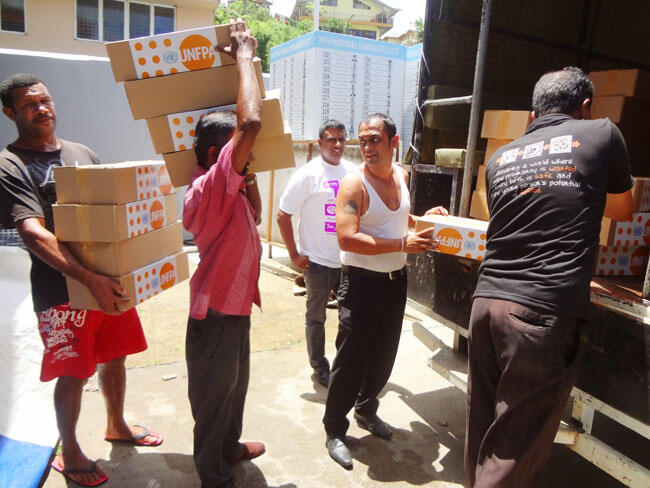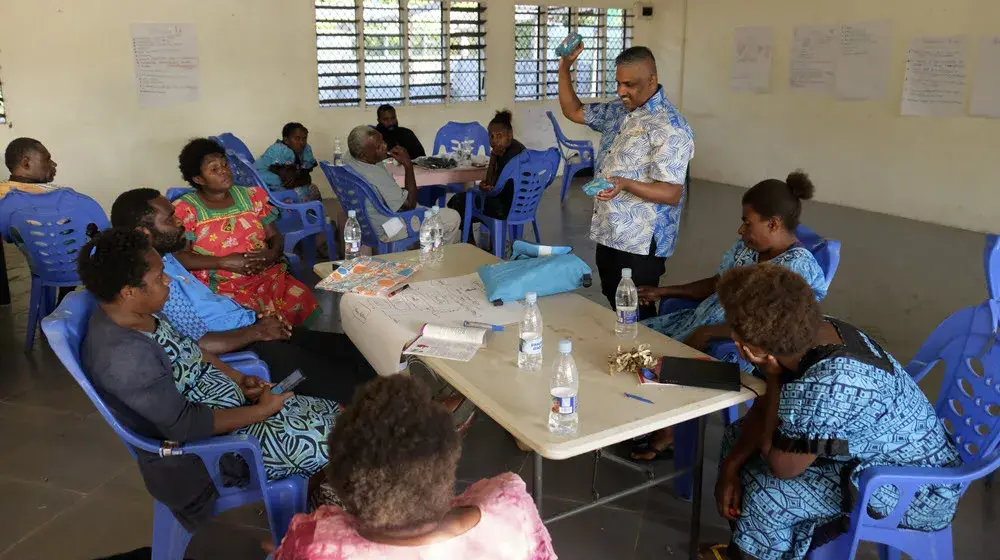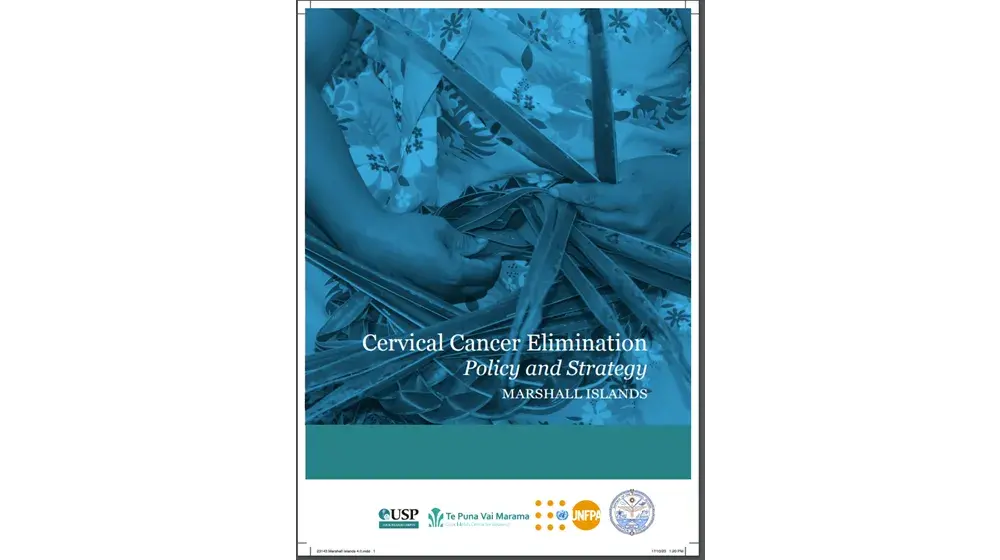UNFPA Pacific, Suva (February 24, 2016) - The United Nations Population Fund, UNFPA, Pacific Sub-Regional Office has provided through the Fiji Ministry for Health and Medical Services a first batch of 200 emergency dignity kits, which are packed specifically for women to ensure reproductive health needs are addressed.
The provision of dignity kits immediately after events like Severe Tropical Cyclone Winston seeks to ensure that sexual and reproductive health concerns are considered and addressed as part of the first wave of response, at a time of competing interests and priorities.
Packed in water-resistant bags, items include a tee-shirt and sarong, bath soap and washing powder, torch, sanitary pads and underwear, condoms, towels and a water-resistant pouch for important documents like birth certificates.
"Assessments are critical for us to ensure a targeted response and as we wait for these to be concluded, one of the main roles UNFPA plays in humanitarian situations globally as part of the United Nations is the provision of prepositioned dignity kits," Dr Laurent Zessler, UNFPA Pacific Director and Representative said.
"Reproductive health needs are not usually prioritized immediately after an event like a natural disaster but it is key to recovery; and as women are usually one of the main drivers of recovery, it is important that we also look after their fundamental health."
The United Nations Population Fund, UNFPA, response has traditionally targeted the prevention of maternal and infant mortality, the reduction of HIV transmission; and the prevention and management of consequences of sexual violence.
Cyclone Winston, a Category 5 severe tropical cyclone which wrought havoc across the group of the Fiji islands February 20 has claimed 42 lives, including a 10-month-old baby, so far. About 14,000 people are reportedly sheltering in 274 evacuation centers; Fiji is in a 30-day State of Natural Disaster period.
Globally-speaking, an estimated three-fifths of all maternal deaths take place in humanitarian or fragile contexts; every day 507 women and adolescent girls die from complications of pregnancy and childbirth in emergency situations, the 2015 State of World Population Report states.
"The UNFPA now awaits final assessments to ascertain how best we can move forward in a targeted approach to ensure that we are effective in supporting the people of Fiji," Dr Zessler said.
For more information, please contact Ariela Zibiah on +679 3230711 or 8682097 and/or Email: [email protected]
UNFPA has long responded to humanitarian emergencies across Asia and the Pacific, the most disaster prone region in the world, including Cyclone Pam in Vanuatu, the Nepal earthquake and floods in Myanmar triggered by Cyclone Komen last year.
Severe Tropical Cyclone Winston is considered one of the strongest storms recorded in Fiji and experienced in the South Pacific with estimated sustained winds of around 230 kmph, gusting up to 325 kmph.





